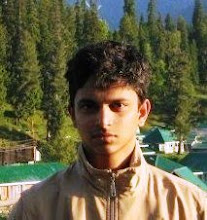Heavy metal suddenly feels hollow. Ronnie James Dio has passed.
On May 16, heavy metal lost some of its heaviness. The Iron Man of metal, Ronnie James Dio, 68, whose fearsome stage persona won him millions of fans around the world, died of cancer. The rich tenor that soared smoothly into an operatic baritone, the wild hairdo, the over-the-top dressing and commanding stage presence that belied his puny stature (he was shorter than Sachin Tendulkar) is finally still. To the very end, his music was powerful and consistently excellent, with deep lyrical thought pervading every fibre of his being. He was a standard bearer who held aloft the metal pennant with a dignity and integrity rarely associated with the genre. After he died, rock musicians of every hue lined up to pay tribute to the master, the dragon-slayer with a heart, the Michael Jackson of metal.
Dio's career spanned over half a century, starting out with rockabilly bands as a teenager. His near-classical style of vocal production was developed before the age of amplification, when the singer had to project his voice to the back of the hall by his own strength. Along with Bruce Dickinson of Iron Maiden and Rob Halford of Judas Priest, he pioneered the semi-operatic style of vocal production in metal, one instance among many of the genre's classical roots. Variously described as a 'class act' and a 'thorough gentleman', there is no record of him ever having refused an autograph.
Though he started his career in the late '50s, it wasn't until the early '70s that his band, Elf - they used to open for Deep Purple - started getting noticed. In 1975, Purple's guitarist, Ritchie Blackmore, hired Dio for his new band, Rainbow, which brought him fame. It's another matter that Dio's golden vibrato closely resembled that of Ian Gillan, Purple's singer. In 1979, when trouble began to brew in Black Sabbath, the founders of the heavy metal genre, iconic singer Ozzy Osbourne was fired for his drug and alcohol addiction, and Sabbath's manager's daughter Sharon (who later married Ozzy) suggested that Ronnie should head the world's most formidable metal act.
The three years he spent with the Sabs brought him worldwide renown, as much for his voice as his prodigious song writing. His first album with the band, Heaven and Hell, is still the holy grail of metal. More than merely a singer, he was an accomplished and articulate lyricist with the aura of a troubled poet. Though many think that the band's dark name and Dio's gothic personality - he was obsessed with skulls, chains and occult imagery - indicated that he was a Satanist, Dio was never really a devil worshipper. (He was raised Catholic and thought as a child that nuns were "penguins who would smack you if you went wrong". ) For him, devils and dragons were metaphors of the ancient battle between good and evil.
It was with Sabbath that Dio popularised the cornuto, or the devil's horns, metal's most enduring symbol. Dio didn't invent the devil horns, nor did he claim to. He once explained that it was an Italian superstition (his parents migrated to the US from Italy) that the devil's horns, called the 'maloik', was used as a sign to ward off the evil eye.
Widely regarded as one of the most affable and unassuming metal heads in history, he rarely left a performance without posing with every fan who wanted a picture with him. Many fans call him "the nicest man you'll ever meet". He was also closely associated with Children of the Night, an organisation, which rescues America's children from prostitution, and his metal version of Live Aid raised massive funds for famine relief in Africa.
The metal community is in mourning. Online forums are heavy with tributes in an outpouring not witnessed since Michael Jackson's death. One Mexican fan recalls how he wasn't allowed into the hotel Dio was staying at, and shouted, "Dio, Dio", till Dio himself came out and asked security to let him in. When security refused, Dio walked out in the rain and signed autographs and posed for pictures with everyone present. Metallica's Lars Ulrich credits his entire career to Dio's influence, Killswitch Engage called him "one of the greatest metal singers of all time", and Slipknot's Corey Taylor called him a "great man with a smile and a handshake for fans and peers alike".
It's unlikely that the metal community will ever forget Ronnie James Dio. The volume of work and reputation he leaves behind ensure that he will always be a Rainbow in the Dark.
This article was first published in The Times of India's Crest edition on May 22, 2010.


No comments:
Post a Comment